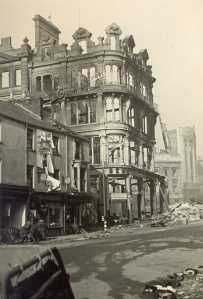
He is one of Wales’ greatest explorers – but few remember his name and there is no national monument in his honour.
There is a story behind why Wales may have tried to forget Edgar Evans – and it concerns a sense of misplaced shame.
Evans was with Captain Robert Scott when he stood at the South Pole more than 100 years ago. Upon arriving at the Pole they were already exhausted.
Their spirits sunk further when they realised Roald Amundsen had got there first.
Scott’s party was defeated first by the Norwegians and then by a terrible Antarctic winter which came in early and closed over them like a shroud.
Evans was the first of the five men to die. He was malnourished and a cut in his hand was festering.
On February 17, 1912, his exhausted body gave up.
The second to die, Captain Oates, had a leg wound which had turned gangrenous. His leg needed amputating. He crawled from the expedition tent in a blizzard around March 17th and was not seen again.
The remaining three – Scott, himself, Bowers and Wilson – died about 10 days later.
It took a year for the news of their deaths to reach Britain.
“People were initially very sad, then proud but then they had to try and find an explanation,” Dr Isobel Williams, author of a biography on Edgar, called ‘Captain Scott’s Invaluable Assistant’, says.
“In some newspapers they focused on Edgar as not only failing and slowing them down but by his failure and slowing the party he caused the death of all the expedition.”
The men had left Britain in 1910, sailing from Cardiff on board the Terra Nova with South Wales’ coal lighting its boiler.
Two nights before they left, the crew had celebrated at the Royal Hotel in St Mary Street. A century later the Captain Scott Society still meets there. Wales had contributed about half of the funds needed for Scott’s expedition.
But when news reached Britain of the men’s deaths, some began to feel a little ashamed of Evans.
Edgar’s grandson, John Evans, from Swansea, said on the 100th anniversary of the explorer’s death: “I think it was based on snobbery a bit because they made him the scapegoat in the beginning.”
Evans had been on not only the mission to the South Pole but Scott’s 1901-1904 Discovery expedition which had helped prove Antarctica was a continent and not a massive pack of ice.






